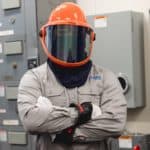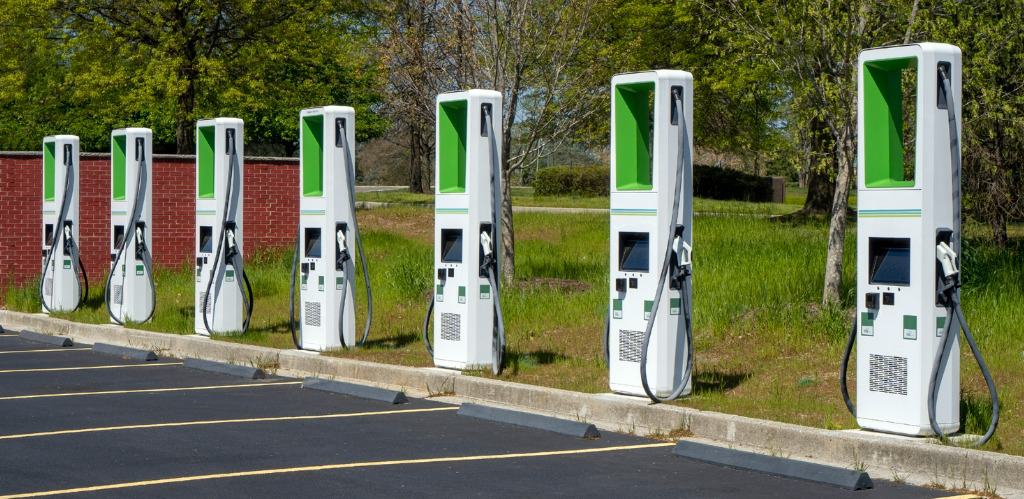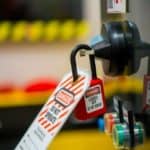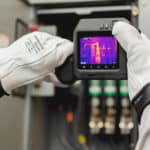Arc Flash Training - NFPA 70E
Electrical Safe Work Practices
Protecting your people from the risk of an arc flash event is likely at the top of your safety priorities. And rightly so. An NFPA report estimates that five to 10 arc flash incidents occur daily, and burns from electric flash are responsible for many work-related injuries.
SEAM Group offers a variety of in-person, live online, and on-demand course options to help you provide critical safety training and meet compliance goals.
Arc Flash Training Courses
- Electrical Safe Work Practices – NFPA 70E 2024
- Qualified Person Electrical Safety Training – NFPA 70E 2024
- NFPA 70E Plus Basic Industrial Electricity | Hands-On Troubleshooting
- Electrical Equipment Maintenance – NFPA 70B Standard* (1 or 2 Day Trainings)
Let’s connect to discuss your safety training needs and discuss our flexible training programs and delivery options.
Book Your Training Today!
Electrical Safe Work Practices – NFPA 70E 2024
Training duration: 1 day
This fast-paced class is designed for all personnel working on, around, or near any electrically energized equipment. Topics discussed include electrical hazards, the safe installation of electrical equipment, and proper electrical work practices and procedures.
Key takeaways from this training:
- Differences between the 2021 and 2024 NFPA 70E standard editions
- Increased safety awareness
- Understanding of the minimum requirements of the OSHA standards and their application in the workplace
- The ability to spot hazards, avoid accidents, and prevent costly fines
- Injury prevention and life-saving knowledge
- The critical relationship between the NFPA 70E and NFPA 70B standards
- OSHA CFR 1910.331-335
- NFPA 70B & NFPA 70E
- Workplace safety programs
- Arc rated clothing
- PPE Categories
- Voltage-rated gloves and tools
- Selecting PPE, incident energy vs. 70E tables
- Understanding electricity
- Conductors/Insulators
- Shock safe and unsafe current values
- Justification
- Permits
- Exemptions
- Assessment procedure
- Human error
- Likelihood of occurrence
- Hierarchy of risk control methods
- NFPA 70E hazards
- Approach boundaries for electric shock protection
- Limited
- Restricted
- Arc flash boundary
- Clearance distances
- Labeling
- Rubber insulating gloves
- Insulated tools
- Barricades/Attendants
- Conductive articles
- Host employer
- Contractor employer
- Circuit breakers
- Fuses
- Grounding
- Cords
- GFCI
- Selection and use
- Types
- Category rating
- Lockout/Tagout
- Training
- Auditing
- Stored energy
- Article 320 & Annex F
- Damaged lithium batteries
- Capacitors
- Fatality assessment
- Attitudes, emotions
Qualified Person Electrical Safety Training - NFPA 70E 2024 | Arc Flash Safety
Training duration: 2 days
This course covers all the requirements a Qualified Person needs to know, including OSHA and NFPA 70E 2024 electrical safe work practices. The primary goal of this course is to keep electrical workers safe, updated, and equip them with lifesaving knowledge.
Key takeaways from this training:
- The differences between the 2021 and 2024 NFPA 70E standard editions
- Standards for electrical safety
- Electrical fundamentals
- Qualified person requirements
- Risk assessment, approach boundaries, and clearance distance
- Electrical hazards
- The safe installation of electrical equipment
- Proper electrical work practices and procedures
- The interconnection between NFPA 70E and NFPA 70B
Hazard risk assessment
- Arc flash hazard assessment
- Incident energy analysis
- Arc flash boundaries
- Approach boundaries for shock protection
- Clearance distances
- Equipment labeling
Standards for electrical safety
- OSHA
- Code of federal regulations 1910.331 335
- NFPA 70E standard for electrical safety in the workplace, 2024 edition
- Workplace safety programs
Reducing electrical hazards
- Fuses
- Circuit breakers
- Guarding
- Grounding
- GFCI
Electrical fundamentals
- Understanding electricity
- Conductors/Insulators
- Shock safe and unsafe current values
Personal protective equipment (PPE)
- Arc-rated clothing
- Hazard risk categories
- Voltage-rated gloves and tools
Work involving electrical hazards
- Justification
- Permits
- Exemptions
Meter safety
- Selection and use
- Category rating
NIOSH case studies
- Fatality assessment
- Attitudes, emotions, and conditions
Energy control program
- Lockout/Tagout
NFPA 70E Plus Basic Industrial Electricity | Hands-On Troubleshooting
Training duration: 3 days
The National Electrical Code, NFPA 70E, and OSHA require that individuals receive safety training before they can be considered Qualified to perform electrical maintenance. That’s where the NFPA 70E Plus training comes in.
Key takeaways from this training:
- How to select an appropriate voltmeter
- How to determine normal voltage
- How to determine the appropriate PPE for a hazard
- How to determine approach distances based on voltage
- Requirements of OSHA 1910.331 through 1910.335
Additionally, participants will become familiar with the procedures required by NFPA 70E 2024. The NFPA 70E Plus course goes beyond covering compliance. The training aims to prepare participants to avoid injuries from electrical hazards. Hands-on troubleshooting panels will be used, and students will build circuits and troubleshoot them. Real-world examples will be given for students to make decisions concerning PPE and appropriate troubleshooting techniques. This course is a unique learning experience that will improve troubleshooting skills and make a facility more efficient.
Hazard analysis
- 70E hazards
- Approach boundaries for shock protection
- Arc flash analysis
- Arc flash boundaries
- Reducing arc flash
- Equipment labeling
Meters
- Basics
- Category rating
- Selection and inspection
- Voltage
- Continuity
System voltage level
- Transformers
- Single-phase power
- Three-phase power
- Grounding
Personal protective equipment (PPE)
- Arc-rated clothing
- Hazard risk categories
- Insulating tools and gloves
- Selecting PPE
Standards for electrical safety
- OSHA
- Code of federal regulations 1910.331 335
- NFPA 70E standard for electrical safety in the workplace, 2021 edition
- Workplace safety programs
Electrical fundamentals
- Understanding electricity
- Conductors/Insulators
- Shock safe and unsafe current values
Work involving electrical hazards
- Justification
- Permits
- Exemptions
Qualified vs. Unqualified
Training
Knowledge
Tools and methods
Relays
- Ice cube relays
- Time delay relays
- Machine tool relays
NIOSH case studies
- Fatality assessment
- Attitudes, emotions, and conditions
The motor starter
- Prewire
- Troubleshooting
Troubleshooting steps
- Narrowing the problem
- Half-splitting method
Energy control program
- Lockout/Tagout
Outside service personnel
- Contractors
Build and troubleshoot
Electrical Equipment Maintenance – NFPA 70B Standard* (1 or 2 Day Trainings)
Training duration: 1 or 2 days
This NFPA 70B course is for safety, maintenance, and operations leaders responsible for employees’ safety and electrical equipment’s reliability. The course will provide you with an in-depth understanding of the requirements of an electrical maintenance program and preventive maintenance strategy to comply with the NFPA 70B standard. You will also learn about the vital intersection between the NFPA 70B standard for electrical equipment maintenance and the NFPA 70E standard for safe work practices.
Key takeaways from this training:
- The relationship between NFPA 70B and NFPA 70E
- The scope, purpose, and implementation of NFPA 70B
- The key components of a compliant electrical maintenance program
- The role and responsibilities of an electrical maintenance program (EMP) coordinator
- Determine condition of maintenance and physical condition of electrical equipment
Standards for electrical maintenance
- NFPA 70B
- NEMA
- ANSI
- NFPA 70 NEC
- NFPA 70E
Electrical maintenance program
- Inspection of equipment
- Equipment-specific maintenance tasks
- The current condition of maintenance
- Incident investigation
- Audit requirements
- Cleaning of electrical equipment
- Identifying an EMP coordinator
Scope and purpose of NFPA 70B
- What NFPA 70B covers and the purpose of this standard
Electrical maintenance program coordinator
- Role and responsibilities
Electrical maintenance training
- Training requirements
Rework and retrofitting equipment
- Rework requirements
- Safety certification
Electrical equipment lighting
- Inspection
- Cleaning
Single line drawings
- Primary reference for system studies
Short-circuit studies
- A requirement under the standard “shall be created”
- Coordination and arc flash studies
Reducing electrical hazards
- New technologies
The SEAM Group Difference
Collaboration and Partnership Defined
More than a vendor, SEAM Group functions as a strategic advisor to meet you where you are and take you where you need to be. We uncover quick wins, while also developing and managing long-term programs to help you exceed ongoing safety, reliability, and maintenance goals.





